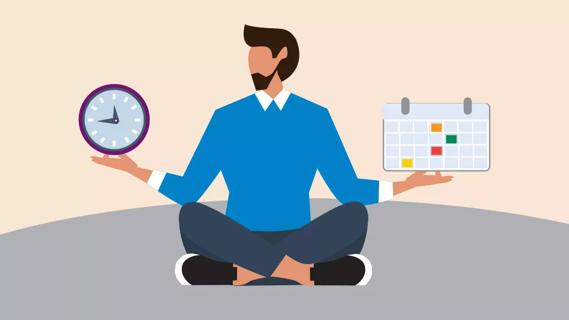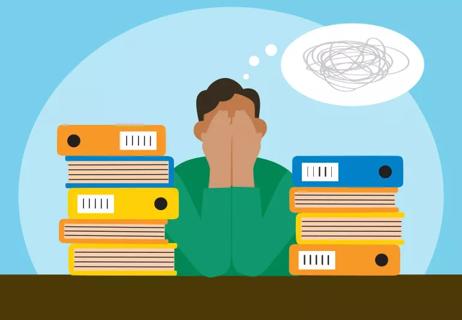Tips for preventing a mental meltdown

As events regarding the coronavirus (COVID-19) continue to evolve, it’s understandable that you might feel increasing stress.
Advertisement
Cleveland Clinic is a non-profit academic medical center. Advertising on our site helps support our mission. We do not endorse non-Cleveland Clinic products or services. Policy
Information is rapidly changing and can be confusing, overwhelming and even scary. You may experience fear and spikes in anxiety. But even if you’re managing your anxiety levels well, there’s still so much more to deal with.
Whether it’s dealing with at-risk family members or patients, a roller coaster economy, trying to juggle work, keeping kids occupied, or simply adjusting to a new, unfamiliar situation, stress can easily pile up and negatively impact you — both physically and mentally.
Clinical psychologist Amy Sullivan, PsyD, ABPP, stresses the importance of planning coping activities. “America is the engine of ingenuity,” she says. “Let’s be innovative. This is a time where we can really be creative and come up with positive coping skills.”
Exercise regularly. While gyms may have mask requirements or social distancing guidelines in place, it’s still possible to get in aerobic exercise, like walking, running, hiking or playing with your kids/pets, and these can all can help release endorphins (natural substances that help you feel better and maintain a positive attitude). There are other exercises you can do in the comfort of your own home, too. Dr. Sullivan recommends yoga and stretching as one way to both exercise your body and calm your mind and it’s easy to do by yourself.
Advertisement
Maintain a healthy diet. Stress can adversely affect both your eating habits and your metabolism. The best way to combat stress or emotional eating is to be mindful of what triggers stress eating and to be ready to fight the urge. “If you are someone who is prone to emotional eating, know your triggers, know what stresses you out and be prepared,” Dr. Sullivan says. Keeping healthy snacks on hand will help nourish your body, arming yourself nutritionally to better deal with your stress. “Helping to regulate your blood sugar throughout the day is going to keep your body stable and your emotions on a much better playing field,” Dr. Sullivan says.
Take a break. “As humans we want control over our lives and in this situation, so we have to learn to manage lack of control,” says Dr. Sullivan. While it’s important to stay informed of the latest news and developments, the evolving nature of the news can get overwhelming. Find a balance of exposure to news that works for you. This is particularly important for our children. We need to limit their exposure to the media and provide age-appropriate information to them. Whenever reasonably possible, disconnect physically and mentally. Play with puzzles, a board game, do a treasure hunt, tackle a project, reorganize something, or start a new book that is unrelated to coronavirus coverage.
Connect with others. “I can’t stress enough how important connection is during times of uncertainty and fear,” Dr. Sullivan says. “Fear and isolation can lead to depression and anxiety. We need to make a point to connect with others regularly.” Reach out to family members, friends and colleagues regularly via phone, text, FaceTime or other virtual platforms. Make sure that you are checking on those that are alone. Check in regularly with your parents, grandparents and your children.
Get sleep and rest. The ever-changing news environment can create a lot of stress, stress that gets amplified when you don’t get enough sleep. It’s especially important now to get the recommended amount of sleep to help you stay focused on work and on managing the stress the current pandemic can bring. Dr. Sullivan recommends avoiding stimulants like alcohol, caffeine and nicotine before bed. If you still find yourself too stressed to sleep, consider developing a new pre-bedtime routine, including a long bath or a cup of caffeine-free herbal tea. And planning for tomorrow earlier in your day can help alleviate stress related to what’s to come.
Following these steps to manage stress and add a sense of normalcy can go a long way to help you cope with the ever-changing environment and help keep those around you, especially children, calm and focused. If you are not able to manage your anxiety or depression on your own, reach out to a behavioral medicine provider for an in-person or virtual visit. “Take care of yourself and others around you,” says Dr. Sullivan.
Advertisement
Advertisement
Learn more about our editorial process.
Advertisement

Connecting with others, going for a walk or focusing on sleep quality can help more than you might realize

You may not always notice it, but your mental health has just as big of an impact on your well-being as your physical health

Rethinking your Mondays might make the ‘Sunday scaries’ a thing of the past

Get to know the resources they have on and off campus, including their friends

College is a time of big transitions, intense stress and major lifestyle changes

Wishing you made a different decision can help you learn from your mistakes

This term from TikTok encourages positive affirmations around ‘luck’

Start a conversation, gently ask questions and offer help without judgment

Type 2 diabetes isn’t inevitable with these dietary changes

Applying a hot or cold compress can help with pain